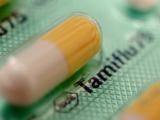Sep 1, 2009
Mexico City offers travelers free insurance
To boost travel business in the wake of the novel H1N1 epidemic, Mexico City last month began offering free insurance to anyone who registers to stay at one of the city's hotels, the Toronto Star reported today. The coverage, provided by Spain-based Mapfre, covers medical problems, trip cancellations, and document losses. It costs the hotels $30 per visitor. Enrollment is automatic when travelers book a Mexico City hotel room.
http://www.thestar.com/news/gta/article/689124
Sep 1 Toronto Star story
Neurologists to help with vaccine safety surveillance
The American Academy of Neurology has joined with the CDC to ask neurologists to report any potential new cases of Guillain-Barre syndrome (GBS) after the pandemic H1N1 vaccine campaign begins. The organizations are asking neurologists to report through the federal Vaccine Adverse Event Reporting System. The groups don't anticipate that the vaccine will pose a GBS risk, but they are acting with caution because some GBS cases were linked to the 1976 swine flu vaccine.
http://www.aan.com/press/index.cfm?fuseaction=release.view&release=757
Aug 31 American Academy of Neurology press release
Canadian expert urges using non-adjuvanted vaccine
Dr. Paul Hebert, editor of the Canadian Medical Association Journal, said in an editorial that approving an adjuvanted version of Canada's H1N1 vaccine will cause delays and urged using a non-adjuvanted version to begin vaccinating high-risk groups, according to the Toronto Star. But a spokeswoman for the Public Health Agency of Canada said the government has a "highly flexible regulatory plan" and will not need extra time to approve the adjuvanted vaccine, the story said.
http://www.thestar.com/news/canada/article/689154
Sep 1 Toronto Star story
Openness was Mexico's most effective tactic against H1N1
Mexican health officials who are examining what worked and what didn't in fighting the first wave of H1N1 flu say that rapid notification of the public about the virus was the most effective step, though it cost the economy billions of tourist dollars, the Associated Press (AP) reported today. Rapid diagnosis, treatment, and quarantine, along with hand-washing, also were helpful. Ineffective steps included travel bans, school closures, and widespread use of surgical masks, the story said.
http://www.miamiherald.com/news/americas/story/1211487.html
Sep 1 AP report
Walgreens' seasonal flu vaccine program includes some free doses
The Walgreens drugstore chain announced yesterday that it will begin offering the seasonal flu vaccine today in its stores. Walgreens also announced a $1 million program to provide free flu vaccine to uninsured adults, who will receive vouchers to use at wellness tour bus locations in nine cities. The Centers for Disease Control and Prevention has called for early seasonal flu vaccine campaigns to make way for novel H1N1 vaccination efforts, expected to start in mid October.
http://news.walgreens.com/article_display.cfm?article_id=5212
Aug 31 Walgreens press release
Federal agencies launch 'Sesame Street' PSAs
Three federal agencies, including the Department of Health and Human Services (HHS), have teamed with Sesame Workshop, the educational group linked to television's "Sesame Street," to launch a new series of public service announcements to teach families and children how to prevent pandemic H1N1 flu. The four videos, available on the Flu.gov Web site, address hand-washing and proper coughing and sneezing techniques. The groups produced a similar series at the start of the spring flu outbreak.
http://www.hhs.gov/news/press/2009pres/09/20090901a.html
Sep 1 HHS press release


















